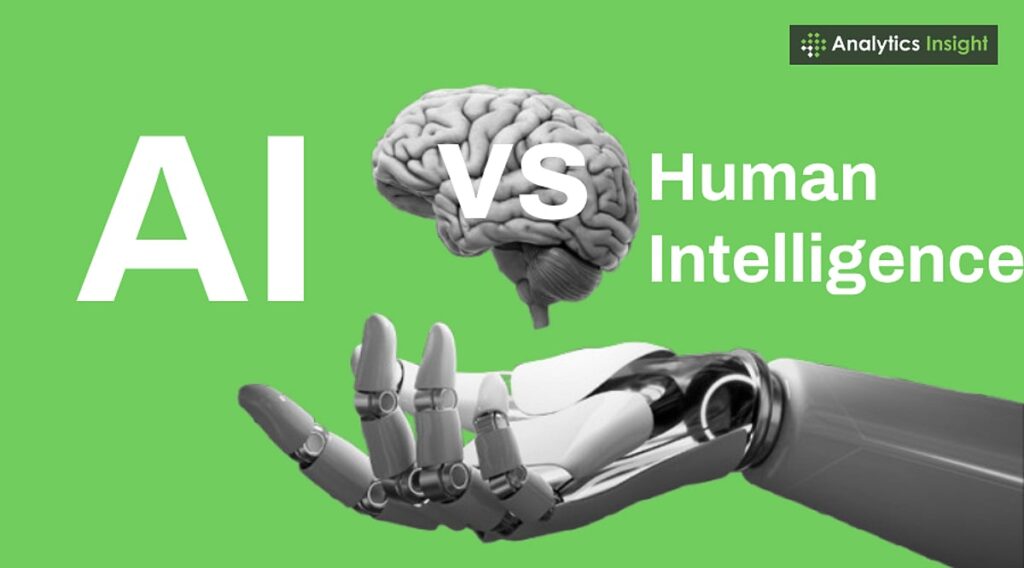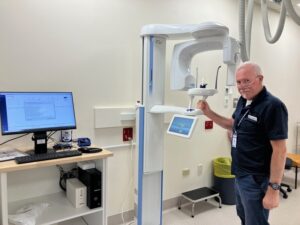
The swift advancement of artificial intelligence (AI) has sparked a vital debate: will AI serve as a complement or a challenge to human intellect? As computers increasingly perform tasks that once required substantial cognitive effort, excitement and concern grow about the future role of humans. While AI attempts to replicate certain human skills, it operates fundamentally differently from the human brain. Understanding these differences and the potential for collaboration offers a more balanced perspective on the evolving relationship between AI and human intelligence.
AI excels in speed, data processing, and task automation but lacks emotional depth and creativity. In contrast, human intelligence thrives on intuition, empathy, and abstract reasoning, making it irreplaceable in many areas. The future likely lies in synergy, where AI complements human strengths rather than replacing them.
The Distinctive Nature of Human Intelligence
Human intelligence is deeply rooted in emotion, innovation, ethical reasoning, and self-awareness. These qualities develop over time, influenced by culture, experiences, and environment. Unlike machines, humans learn through intuition, empathy, and creativity, in addition to data. Critical thinking, self-reflection, and compassionate action are essential components of human intelligence.
For instance, decisions in fields such as social work, ethics, and art frequently rely on emotional intelligence, a trait difficult for machines to replicate. Even in technical roles, human ingenuity remains crucial for problem-solving and innovation. This form of intelligence is adaptable, context-dependent, and guided by values, not just logic.
The Capabilities and Limitations of AI
Artificial intelligence relies heavily on data, mathematical principles, and processing speed. AI systems are designed to analyze patterns, interpret images, generate content, and predict outcomes through extensive data analysis. These tasks are often performed with greater speed and accuracy compared to human capabilities.
AI excels in environments with clear rules and established facts. In sectors like finance, healthcare diagnostics, and logistics, AI can enhance efficiency, reduce errors, and boost productivity. However, AI lacks awareness and cannot grasp concepts beyond its programming. Without genuine understanding or emotions, AI operates within a constrained framework, regardless of system sophistication.
Some experts caution that AI tools could replace many human jobs, leading to a potential conflict between humans and machines. This concern is not unfounded, as machines are already transforming industries by automating repetitive, data-intensive tasks.
Synergy: The Path Forward
The notion of AI entirely surpassing human intelligence is a common theme in speculative fiction and future predictions. Some suggest that machines might eventually outperform humans in all cognitive domains, becoming superior in every aspect. However, current limitations make this scenario unlikely in the near future. Machines lack consciousness, moral judgment, and the capacity for abstract thought—key elements of intelligence that cannot be replicated through algorithms or hardware.
Instead of viewing AI as a threat, many experts advocate for a collaborative model. This model proposes that AI can augment and enhance human capabilities. For example, AI tools can assist scientists in processing data more rapidly, allowing them to focus on research and discovery. In medicine, AI can aid doctors by identifying potential risks, but the ultimate decision-making relies on human insight and compassion.
When humans and AI work together, the results are often more robust than what either could achieve alone. Machines provide speed and precision, while humans contribute depth, emotion, and values.
The Future of AI and Human Collaboration
The relationship between AI and human intelligence is not merely a straightforward rivalry. It is an evolving partnership. The most prudent approach may not be to ask who will prevail, but how both can collaborate effectively. As technology advances, the goal should not be to replace human intellect but to enhance it.
The future will likely be shaped not by conflict or domination but by thoughtful collaboration. A future where humans and AI complement each other may reveal the best of both worlds.
Key Takeaways
- How do AI and human minds differ? AI operates with data and algorithms, while human minds incorporate emotions, creativity, and ethical reasoning.
- Can AI replace human minds? While AI can perform certain tasks effectively, it lacks the emotional and contextual understanding inherent to humans.
- Why should AI and humans work together? Collaboration allows AI’s speed to merge with human expertise, leading to superior outcomes.
- Where do human minds still lead? Areas such as ethics, creativity, emotional intelligence, and strategic planning remain reliant on human intelligence.
- Will AI likely become more powerful than humans? Despite rapid advancements, AI lacks consciousness and moral reasoning, making it unlikely to surpass human intelligence fully.
As we look to the future, the integration of AI and human intelligence presents an opportunity to harness the strengths of both, fostering innovation and progress in ways previously unimaginable.






